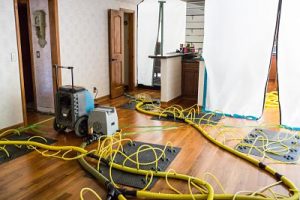How To Prevent Freezing Pipes In The Winter
If the temperature drops below 32°F, water pipes can freeze. These are some ways to prevent freezing pipes in winter and cold temperatures. We will also discuss the minimum temperature that pipes can freeze in your home.
What Temperature Is Required For Pipes To Freeze in Winter?
Water can freeze at 32 degrees F, but it must be at least 20 degrees F before pipes will freeze. Windchill is also a factor. It can cause temperatures to drop by as much as ten or twenty degrees. This is most common along exterior walls, and if your foundation has cracks or holes. The temperature outside can’t be controlled so it is important to control the inside temperature of your home.
Which Pipes Are Most Likely To Freeze in Winter?
Any pipe that gets too cold can freeze and cause water damage. Pipes can be more susceptible to freezing depending on where they are located. These pipes are most likely to freeze.
- Pipes found near exterior walls
- Uninsulated pipes
- Pipes that aren’t heated in crawl spaces, garages or attics
- Heat that isn’t well circulated, like under bathroom cabinets or in the kitchen.
- Outdoor spigots, hose bibbs
- Water sprinklers and irrigation lines
- Swimming pool lines
What Is The Minimum Temperature To Keep Pipes From Freezing?
It is important that pipes do not freeze below 55 degrees F. It is better to keep them between 60 and 68 degrees F. The pipes’ air will stay warm enough to keep them from freezing. If you live in warmer regions, keep your pipes at 68 degrees. You should not insulate your pipes from the freezing cold.
The Best Way To Prevent Pipes Freezing Is To Winterize Your Home
Insulate Your Pipes
Foam insulation is the best method to stop pipes freezing. Any water pipes that are visible, such as those located in basements or garages, should be wrapped. You can purchase this in rolls or precut sections at most home improvement stores for around 50C per foot. If you cannot see the pipes, whole-house insulation is recommended. This will keep your home warmer in summer and keep out cold air in winter.
Turn Off Sprinklers And Spigots
Turn off the water spigot in your exterior home. Then drain it. There will be a shutoff valve to most of the spigots in your basement. After the water has been turned off, turn on the spigot. Once the water is turned off, drain the pipe. You can also cover the faucet with foam insulation to block cold air. Do the same if you have an underground sprinkler system. Turn off the water supply, and then run the sprinklers to stop. Turn off all timers you have installed for your system.
Keep Garage Doors Opened And Heat The Area
To prevent pipes from freezing, garage doors can be closed. This is especially important at night when temperatures drop to their lowest. To keep your garage door warmer, you should add insulation. If your garage is extremely cold, you should heat it. Avoid propane burners, as they can emit toxic gases that could cause suffocation. Electric heaters are safer. You can prevent them from freezing by pointing the heater at walls with water pipes.
Cabinets With Open Under-Sink
Pipes can freeze in cabinets beneath sinks, especially when they are attached to exterior walls. Cabinet doors can prevent heat and cold from getting into heated rooms. To allow warm air to circulate around pipes, the cabinet doors can be open. This will prevent them from freezing. When it’s extremely cold, you should open your cabinets. It’s especially important to do this at night, when it is coldest. If it is below 0 degrees F, you should use a space heater.
Keep Your Faucets Plugged
Allowing the faucets to run can help prevent pipes freezing. Pipes can be prevented from freezing by allowing them to run at a slow pace. Your faucets can be turned on at any time. It is best to run your faucets when it is below 0 degrees F. Cold water lines can freeze as well as hot water pipes. If your faucet has multiple handles, make sure to open them all. Single-handle faucets should be placed in the middle to allow hot and cold water to flow through.
Plan Your Vacation Before You Leave
you are going on vacation, be prepared for cold temperatures. Before you go, set your thermostat at 64-68 degrees F. Open the cabinets under your sink. Ask a friend, neighbor, or family member for a home inspection. You can prevent your pipes from freezing by having them inspect your home at least once a day.
Water Damage Repair Experts
Water damage after a burst pipe? For a free inspection of water damage cleanup and repair, call our IICRC-certified 911 Restoration of Miami at (305)-280-0755 now!!


